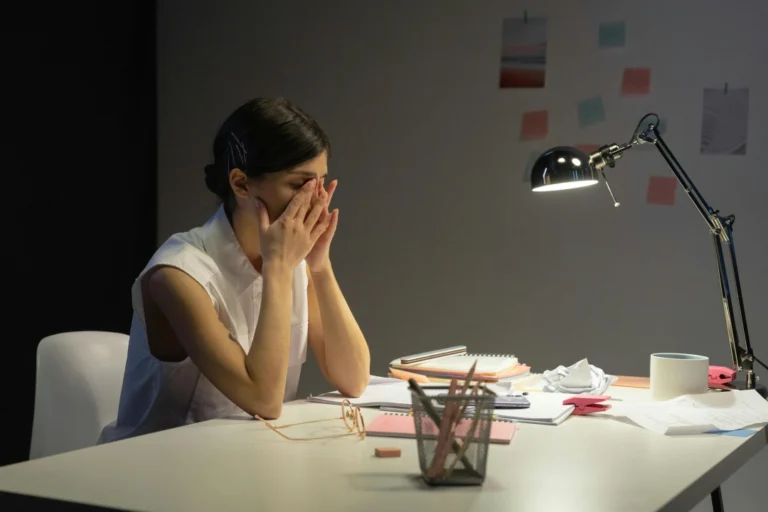
When you are dealing with PCS (also known as post-concussion syndrome), you notice that the symptoms after a concussion last longer than expected. You may experience fatigue, concentration problems, headaches or sensitivity to stimuli. This can have a major impact on your daily life.
Symptoms of PCS
Recovering from PCS can be challenging because the symptoms vary and are not always visible to others. Nevertheless, they often have a significant influence on your daily functioning. Below you will find the most common symptoms associated with post-concussion syndrome.
Headaches and dizziness
Many people experience persistent headaches or a pressing sensation in the head. Dizziness or problems with balance are also common. This can make you feel less mobile or insecure while walking.
Fatigue and sleep problems
A concussion consumes a lot of the body’s energy. When the symptoms persist, constant fatigue often develops. In addition, sleep problems can make you feel even more drained during the day.
Concentration and memory problems
The brain needs time to heal. As a result, you may find it harder to stay focused, remember information, or complete multiple tasks at once. This can affect both daily activities and work.
Sensitivity to stimuli
Light, sound and busy environments can feel overwhelming. This makes it more difficult to attend social situations or remain active for longer periods.
Mood swings and emotional difficulties
In addition to physical symptoms, PCS can also affect your mood. You may feel more irritable, experience sadness, or find it difficult to regulate emotions.
Why professional recovery is important
Trying to recover from PCS on your own can be frustrating. Progress is often too slow or setbacks occur. A specialized program provides structure and the right medical guidance. This ensures that your body and brain have the opportunity to recover in a healthy way.
At Medifit, your situation is first thoroughly assessed by a medical team. After that, a personalized plan is created. This may include physiotherapy, neuropsychological support, relaxation training and improving balance and fitness. Everything is aimed at supporting your recovery from concussion as effectively as possible.
Picking up life again
Recovering from PCS also means learning how to manage your limits and gradually resuming activities. The program helps you regain confidence and develop practical skills. This allows you to function more independently again and enjoy a better quality of life.
Recovering from a concussion: after a rehabilitation program
A rehabilitation program is often an important step towards recovery after a concussion. However, the process does not end there. It is important to maintain the progress you have made and continue strengthening it in daily life.
After PCS, it is essential to remain alert to signs of fatigue or overexertion. Allow yourself sufficient moments of rest and build up activities gradually. Do not force recovery but continue to seek a balance between effort and relaxation.
Structure, routine and a healthy lifestyle
A fixed daily rhythm helps your brain process stimuli more effectively. Regular sleep, calm mealtimes and a well-balanced planning of activities provide stability and make it easier to keep symptoms under control.
Physical activity contributes to the recovery of both body and mind. Gentle walks, light exercises or the activities you learned during rehabilitation can be continued. Combine this with a healthy lifestyle, such as balanced nutrition and avoiding excessive alcohol consumption.
Social and mental support
Keep talking about your experiences and indicate when something is difficult for you. Contact with family, friends or fellow patients can help you cope with the consequences of PCS. Continuing psychological support can also be valuable if you find that symptoms remain emotionally burdensome.
During the program you have often learned new strategies and exercises. By practicing them regularly, you maintain your progress. Think of relaxation techniques, memory strategies or balance and coordination exercises.
Want to know more?
Do you have questions about the rehabilitation program or would you like advice about your situation? Please contact us through the form on our website. Our team will be happy to assist you and explain what you can expect from treatment at Medifit.



